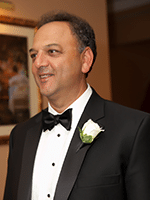
His presentation is titled, “An Interprofessional Collaboration Framework for DCs to Enhance Population Spine Health in Private Practice, Local Hospitals, and the Local Community.”
Q: How is the topic that you are presenting relevant to modern chiropractic practice? How will it help chiropractors be successful now, and into the future?
The landscape in health care is evolving at an unparalleled pace with medical practice acquisitions by large corporate hospital systems, development of accountable care organizations (ACOs), and patient centered medical homes. Integration and interprofessional collaboration on a widespread level is needed for chiropractic to become “mainstream medicine” in addition to “Main Street USA.” Collaboration strategies include both the private-practice level and the large system-based models (i.e., hospitals).
Q: Are there any new developments in your specialty/topic area that make your presentation at NCLC 2019 especially relevant or timely?
Chiropractic in recent years has demonstrated in studies both clinical efficacy and high patient satisfaction. Many guidelines and agencies such as the Joint Commission, the American College of Physicians and the American Academy of Family Medicine advocate that physicians refer for non-pharmacologic therapy that includes chiropractic. Hospital systems, and government systems such as VA hospitals and federally qualified health centers (FQHCs), are staffing DCs. Becoming a clinician that can integrate and collaborate with other specialties will help enhance quality of care and help advance the profession.
Q: Who should attend your presentation and why?
Practicing doctors as well as students who wish to learn how to develop interprofessional clinical collaboration strategies and skills. Widespread interprofessional collaboration and chiropractic integration can help move the chiropractic profession into mainstream medicine.
Q: What practical knowledge or skills can attendees expect to take away from your presentation?
Guiding principles of interprofessional collaborative practice will be reviewed. Concepts of starting small with micro-collaboration at the private-practice or group-practice levels will be presented. Concepts of macro-collaboration on a larger scale such as community hospitals will be presented as well. Successful models of collaboration and integration at the hospital level will be demonstrated.
Q: What was the best career advice you ever received?
One of my mentors taught me early on in my career that…
- Learning is a lifelong process.
- Change is inevitable so adapt and evolve often.
- Practice with humility, compassion and by “the golden rule.”
- Make a difference in the world by helping one patient at a time.
